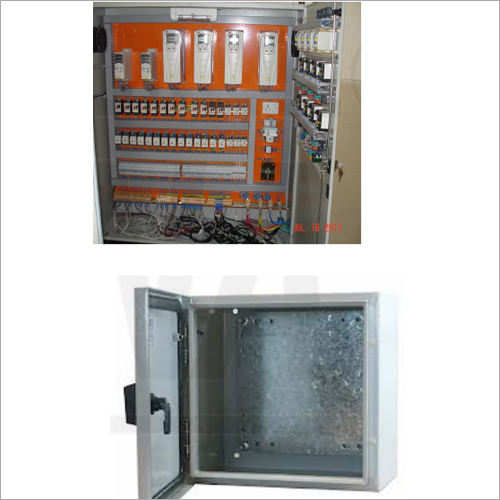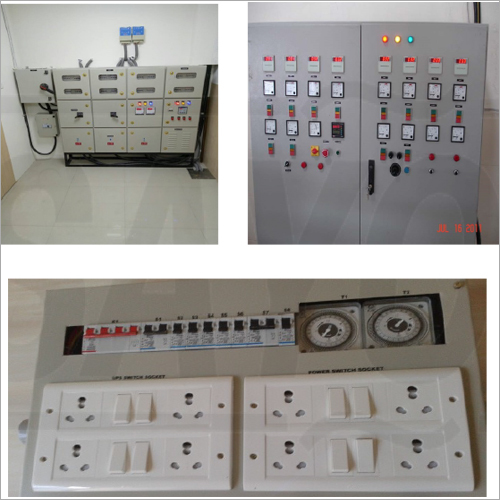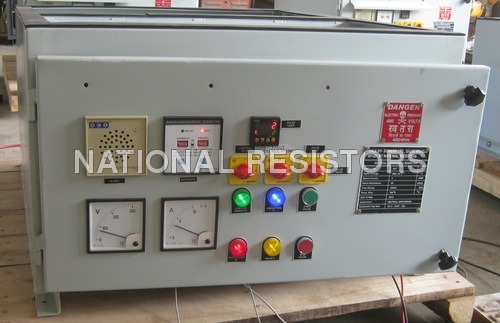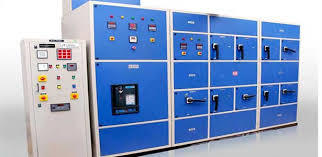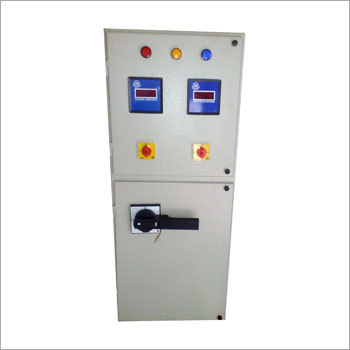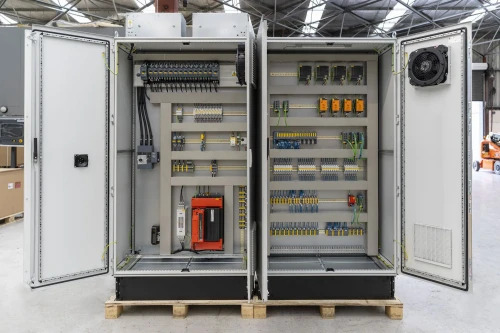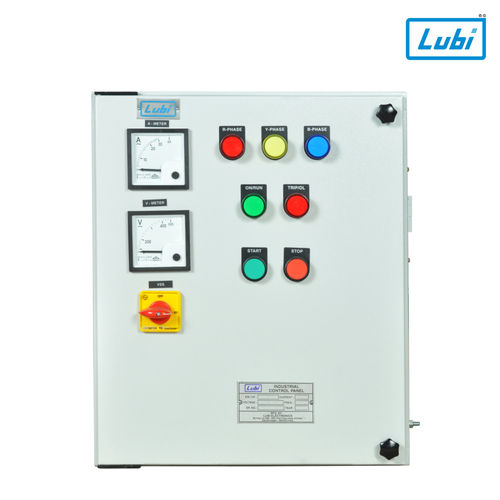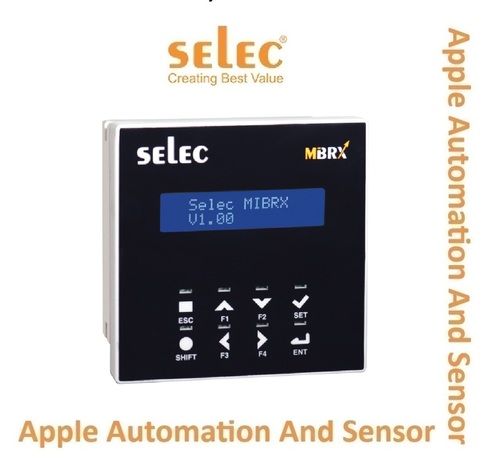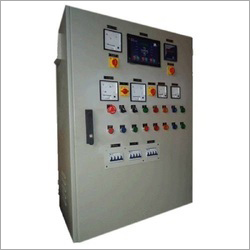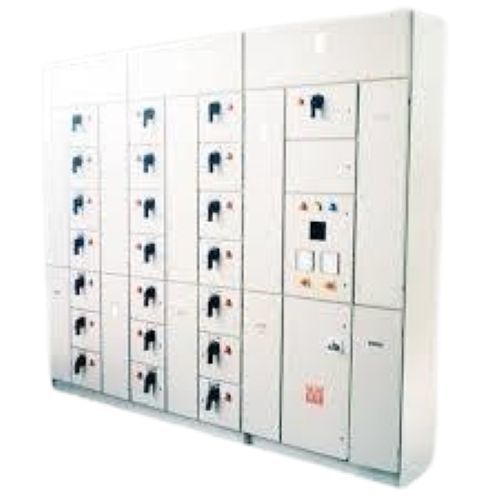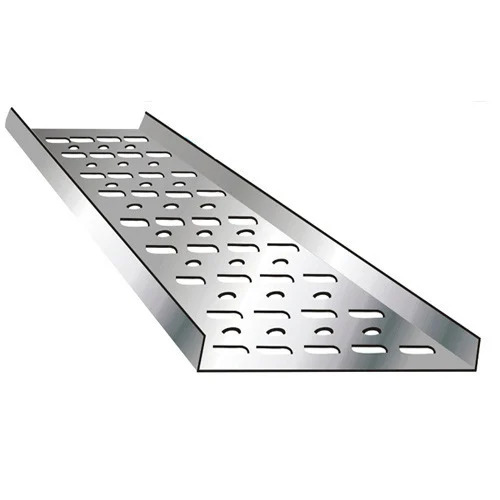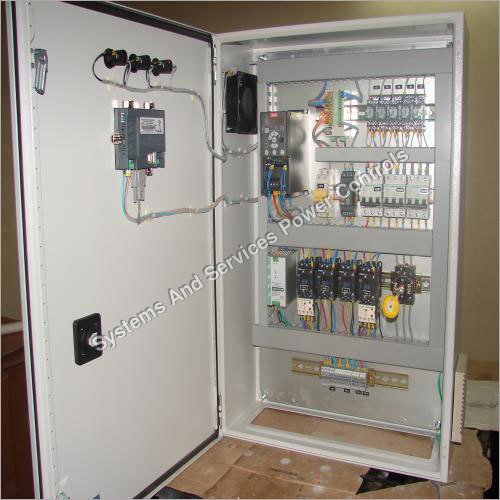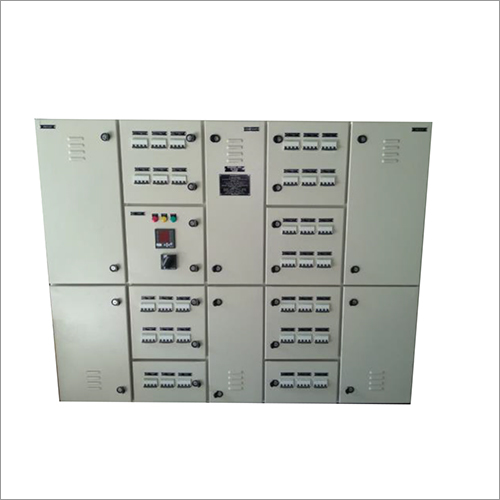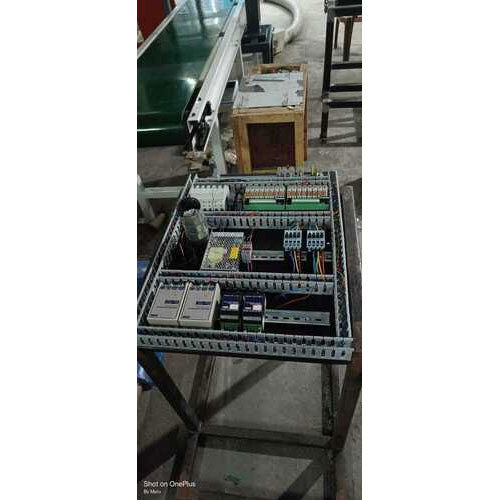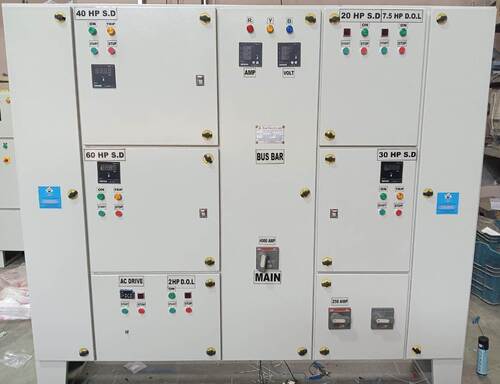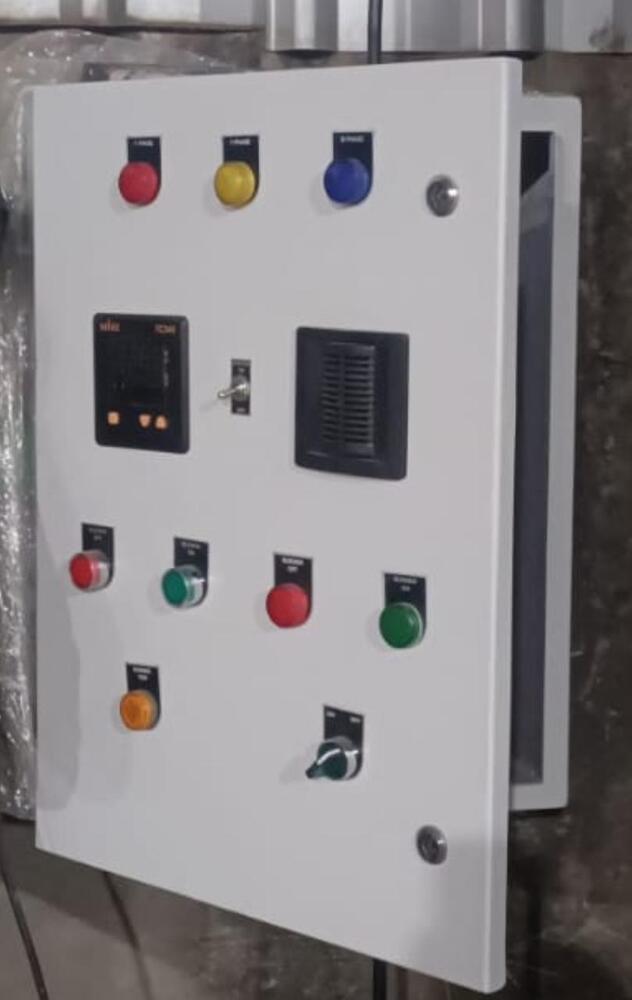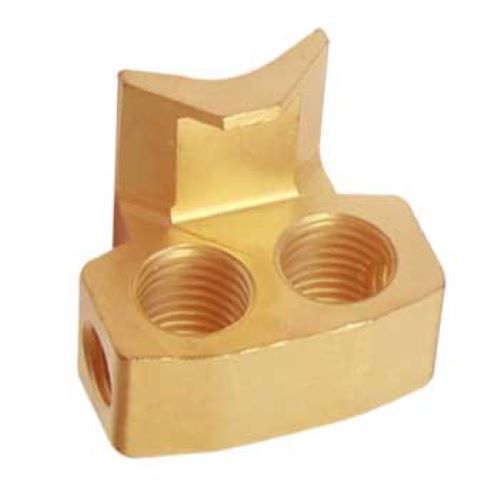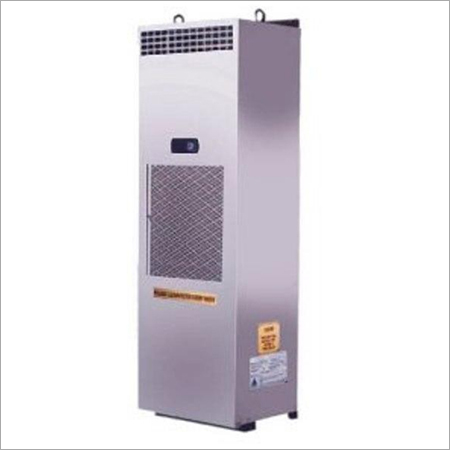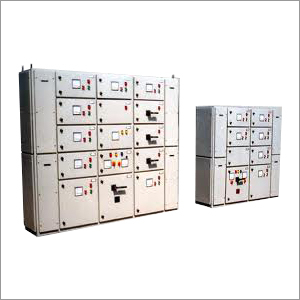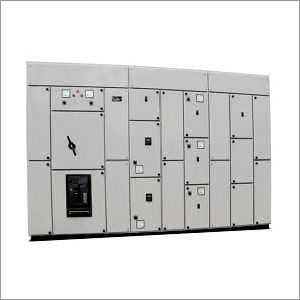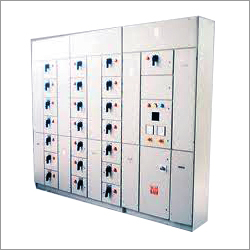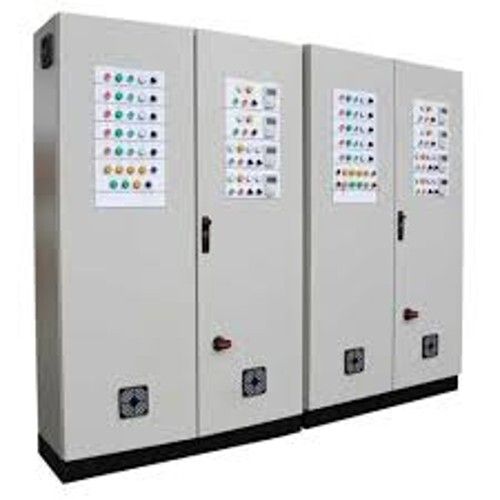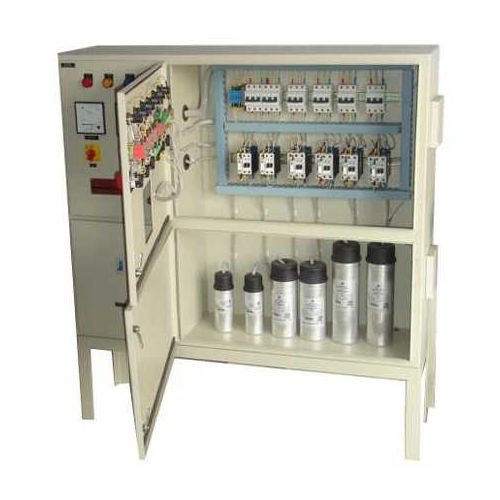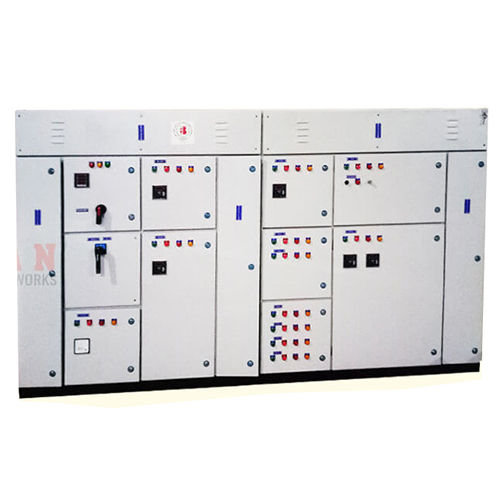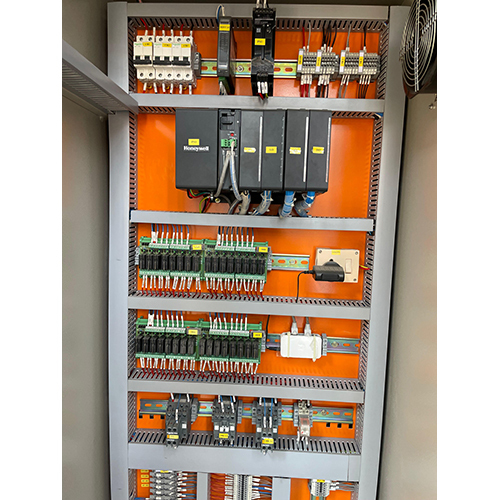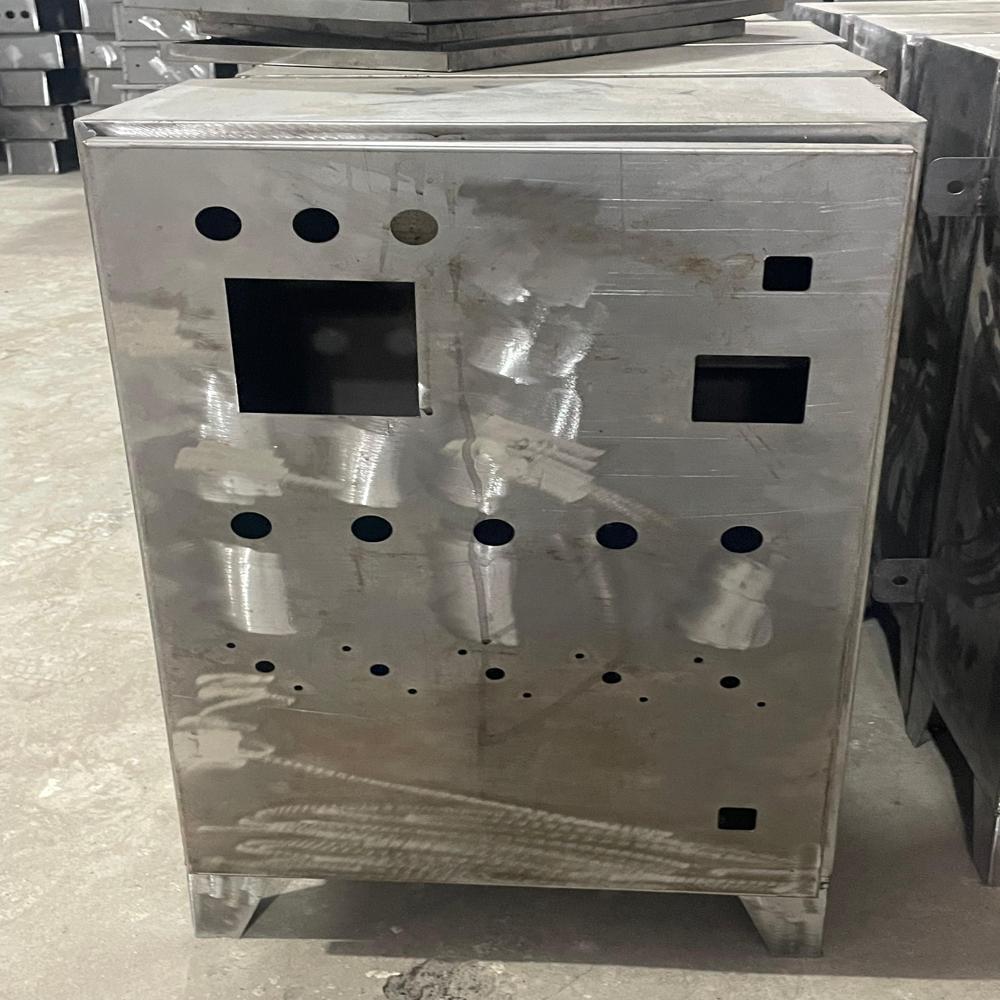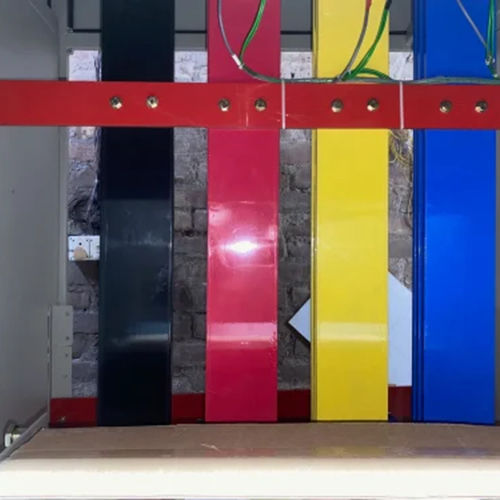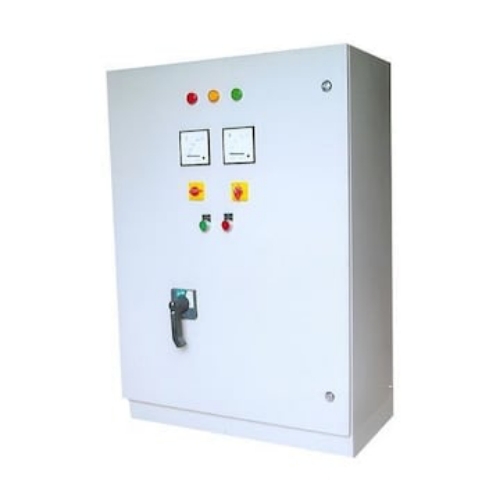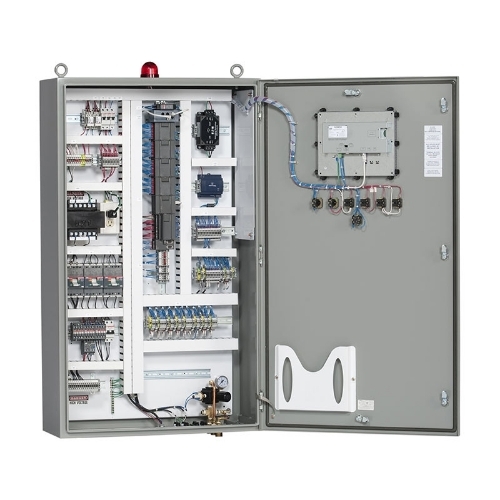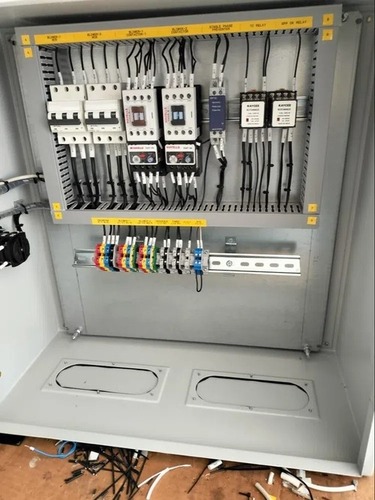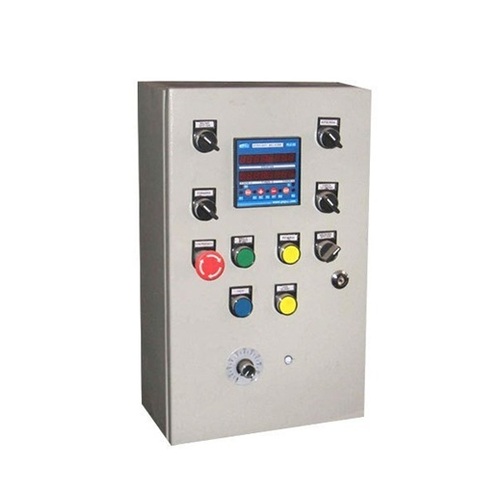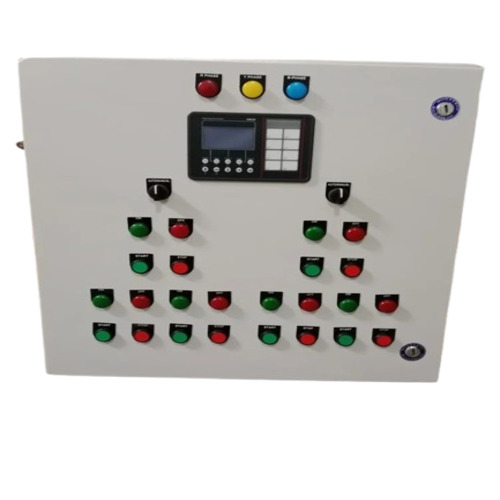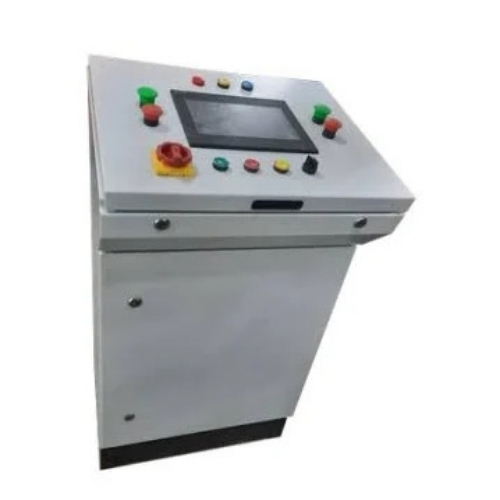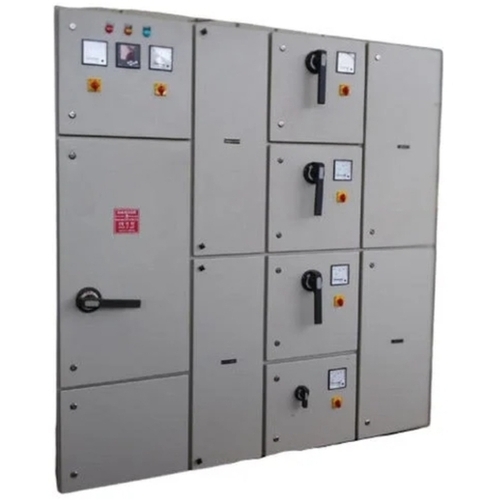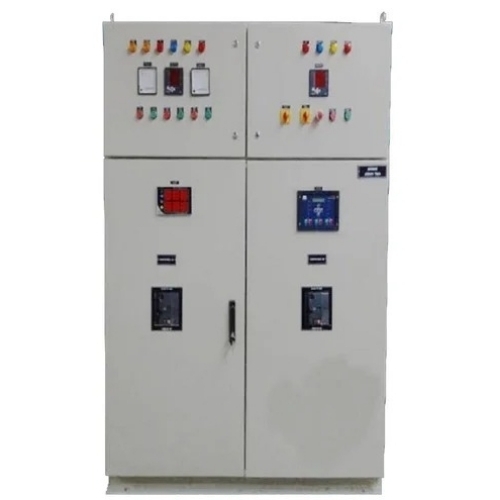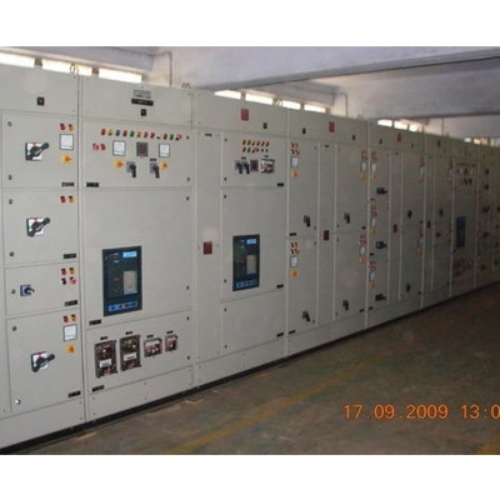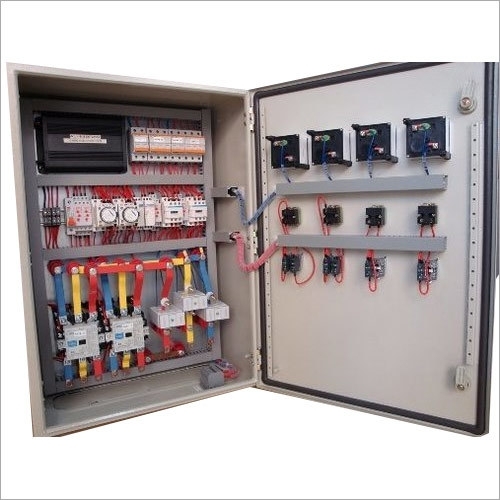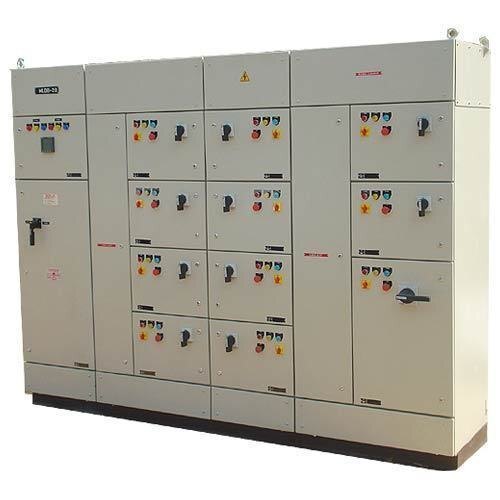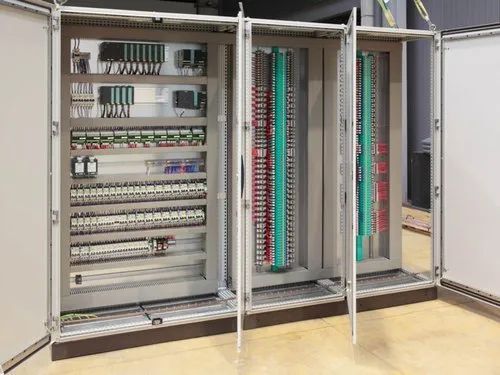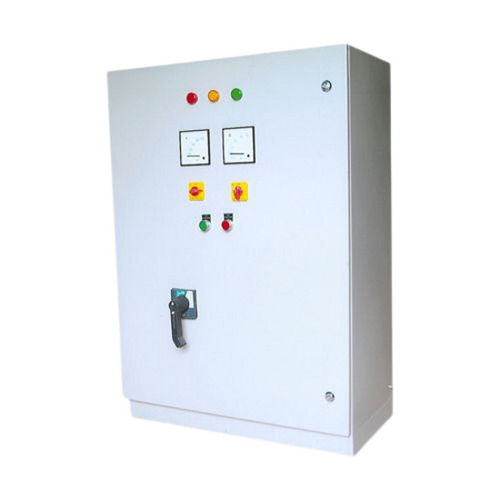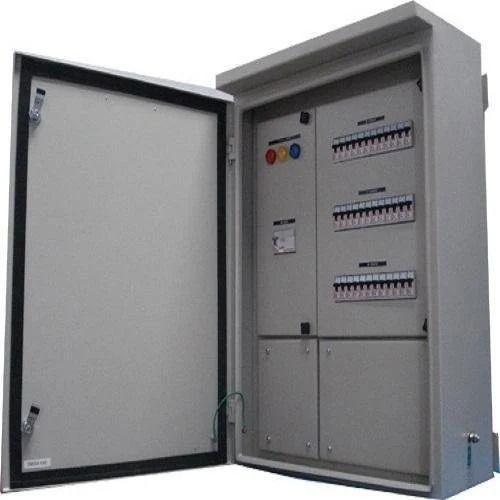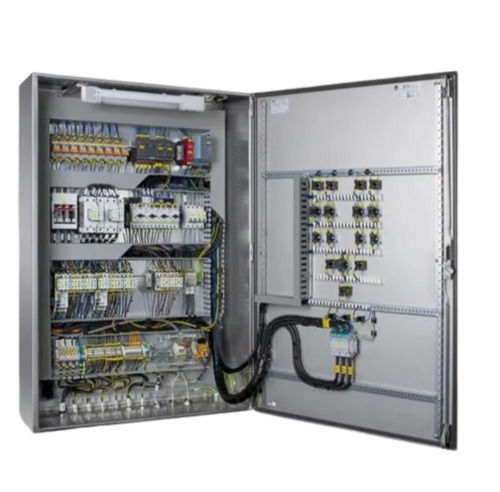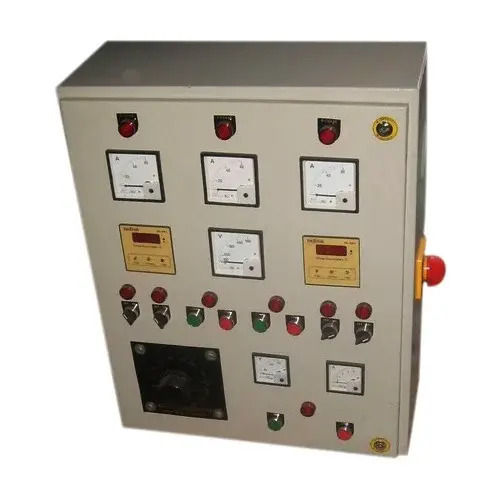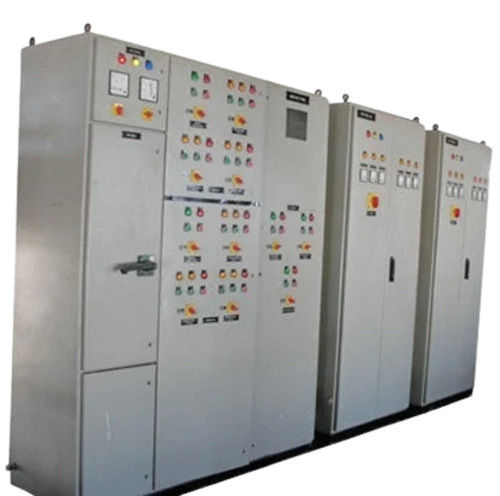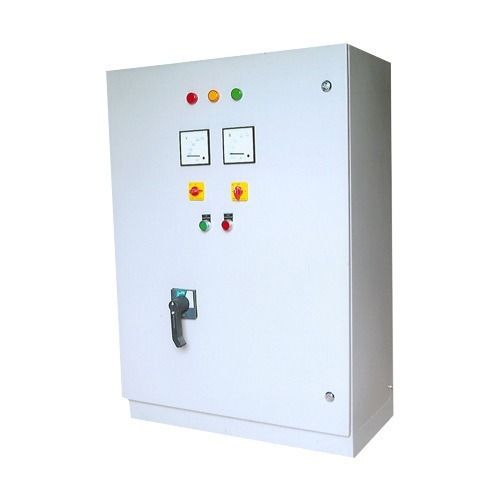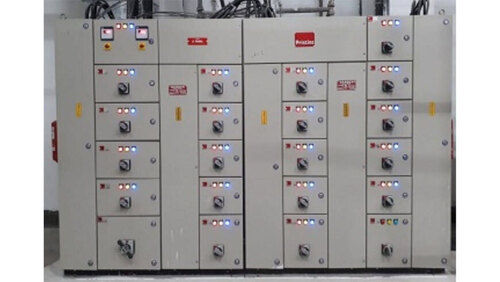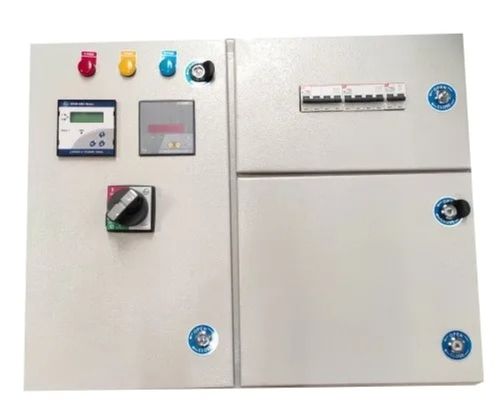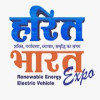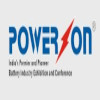- Tradeindia
- Control Panel Boards
- Electrical Panel Board
Electrical Panel Board
(1992 products)Panel Boards - Frequency (Mhz): 50/60 Hertz (Hz)
6500 INR/Piece
MOQ100 , Piece/Pieces
Protection LevelOther, High
Connectivity TypeWired
Operating Voltage230V/415V
Way3-Way
Panel TypePanel Board
Rated Insulation Voltage1000V
View More
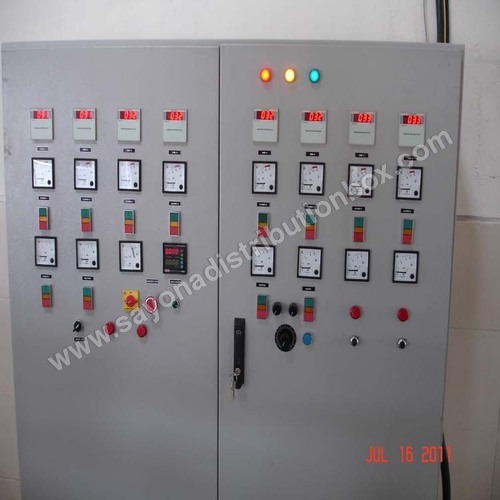
Electrical Control Panel Board Base Material: Metal Base
Price Trend : 50000.00 - 60000.00 INR
Neutral Grounding Panel for Industrial Power Maintenance with 400A
ApplicationMaintaining power
Voltage rating220V
Rated insulation voltage220V
Current rating400A
Frequency50Hz
MaterialStainless steel
National Resistors
Pune
 Trusted Seller
Trusted Seller Super Premium
Super Premium Super Seller
Super Seller Premium Seller
Premium Seller19 Years
 Super Premium
Super PremiumHeavy Duty LDPP Electric Panel Board with IP67 Protection
Base materialMild Steel
Surface colorBlue
Cover materialStainless Steel
Protection levelIP67
Product typeElectric Panel
MaterialExtruded Aluminum
Zentech Automation
Delhi
 Trusted Seller
Trusted Seller Super Seller
Super Seller13 Years
View More
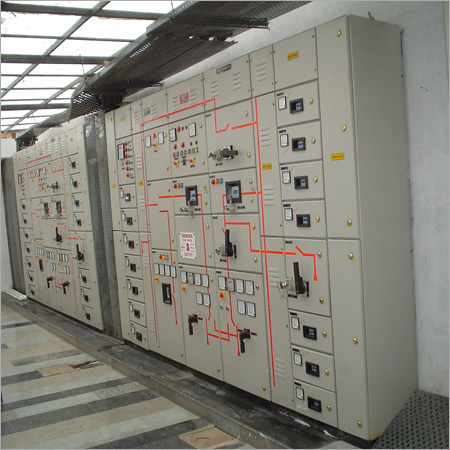
Electrical Panel Board - Base Material: Mild Steel
Price : 70000 INR
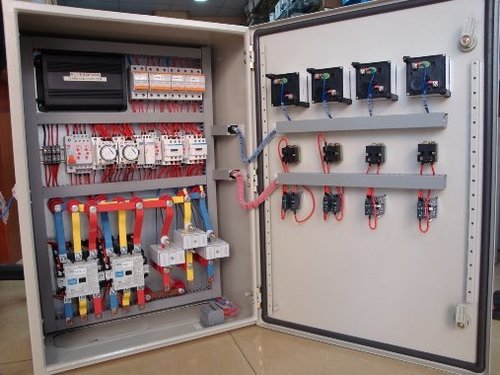
Electrical Panel Board Repair
Price : 1000 INR
Capacity White 32A Single Pole Electrical MCB Board with IP20 Protection
ColorWhite
Poles1P
Current rating32A
Voltage rating240V
ProtectionIP20
Short circuit breaking capacity10 KA
Shreeji Enterprises
Mumbai
 Trusted Seller
Trusted Seller Super Seller
Super Seller Premium Seller
Premium Seller15 Years
Custom Mild Steel Power Distribution Board for Industrial Use
Base materialMild Steel
Cover materialMild Steel
DimensionCustom (L*W*H)
MaterialMild Steel
Surface colorAny Color
Mounting typeWall-Mount
Shiv Shakti Engineering
Mumbai
 Trusted Seller
Trusted Seller Super Seller
Super Seller15 Years
View More

Grey Color Mild Steel Material Electric Control Panel Board
Price : 33000 INR
Electric Panel - High-Performance Steel Construction | Smart Energy Management System, Modular Design, User-Friendly Interface
MaterialSteel
DimensionsCustomizable
Voltage Rating480V
Current Rating1000A
Enclosure TypeNEMA 1
IP RatingIP65
Quanta Electric & Automation Private Limited
Patna
 Trusted Seller
Trusted Seller Super Seller
Super Seller Premium Seller
Premium Seller3 Years
Portable Electrical Panel Cabinet - Color: White
Price: 80000 INR/Unit
MOQ1 Unit/Units
Product TypeElectrical Panel Box
MaterialSteel
WallSheet Metal
ColorWhite
UsePlant
Gayatri Engimech Pvt. Ltd.
Ahmedabad
 Trusted Seller
Trusted Seller Premium Seller
Premium Seller13 Years
Automatic Rectangular Electrical Main Distribution Board Panel 3
Base materialArmoured Metal
MaterialMild Steel
Protection levelIP54
Surface finishPowder Coated
Supply ability100 Per Month
Delivery time6 Days
Pantek Electricals Private Limited
Gurugram
 Trusted Seller
Trusted Seller Premium Seller
Premium Seller2 Years
Direct On Line Starter Control Panel (Dol)
Enclosure MaterialMetal
IP RatingIP65
Operating Temperature0-50°C
Voltage Rating240V
Current Rating10A
Dimensions300mm x 400mm x 150mm
Selec MiBRX-96-1-0-24VDC Panel Mount LED Digital Relay Controller
ColorBlack
MaterialPlastic
Dimensions96mm x 96mm
Voltage24VDC
Inputs8 Digital
Outputs4 Relay
Apple Automation And Sensor
Mumbai
 Trusted Seller
Trusted Seller Premium Seller
Premium Seller17 Years
Brand Industrial Control Panel Board Mild Steel 2mm Thickness IP54
Base materialMild Steel
Cover materialMild Steel
Voltage rating415 V
Max output current1000 A
Thickness2 mm
Protection levelIP54
Industrial Electrical Control Panel - Steel, 3 Phase, 415V, 20Kw, 50Hz | IP65 Protection, Powder Coated Finish, Current 2A
MaterialSteel
Sheet Thickness1.6 mm
Voltage415 V
Frequency50 Hz
Current2 Amp
PhaseThree Phase
Simplex Automation
Bahadurgarh
 Trusted Seller
Trusted Seller Premium Seller
Premium Seller6 Years
High Quality Electric Panel Boards MI//EPB-4 25Amp and MI//EPB-2
Surface finishPowder Coated
Voltage rating415V AC
Frequency50Hz
PhaseThree
Ip ratingIP54
MaterialMild Steel
Top Rated Products
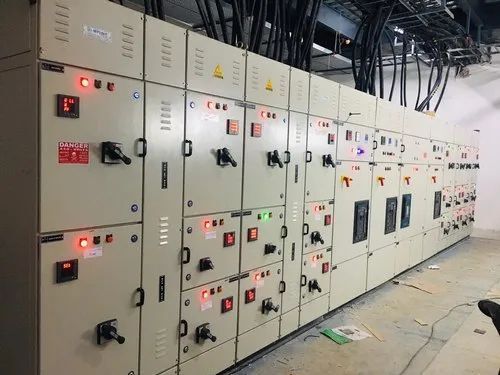
Electric Panel - High-Performance Steel Construction | Smart Energy Management System, Modular Design, User-Friendly Interface
Quanta Electric & Automation Private Limited
FAQs Related to Electrical Panel Board
- low voltage switchgear.
- switchboards
- power electrical panels
- Lighting electrical panels
It's possible that an electrical panel has a lifetime of anywhere between 25 and 40 years on average.
Steel Electric Control Panel for Three Phase Systems Rated up to 5000 Amp
Rated operational voltage3Phase
Rated currentUp to 5000 Amp
Form of segregationForm-3b/Form-4b
Degree of protectionUp to IP 54
Dry power frequency withstand voltage3KV For 1 Minute
Short time current65 KA For 1 Sec
Systems And Services Power Controls
Ambala Cantt
 Trusted Seller
Trusted Seller Premium Seller
Premium Seller18 Years
Electrical Panel - Mild Steel, 220 Volt, IP55 Protection | 50 Hertz Frequency, Powder Coated Finish, Shock Proof Design, 1 Year Warranty
Mount typeWall Mounted
Voltage rating415V
Frequency50Hz
Rated currentUp to 5000A
Insulation voltage1000V
Short time current65KA for 1 sec
Ensave Energy Pvt. Ltd.
Ahmedabad
 Trusted Seller
Trusted Seller Premium Seller
Premium Seller13 Years
Mild Steel Industrial Electrical Panel Board with Stainless Steel
Base materialMild Steel
Cover materialStainless Steel
Surface finishGI Galvanized
Ip ratingIP55/65
Phase3-Phase
Mount typeWall-Mount/Free Stand
415V 630A Wall-mounted Distribution Panel Board with IP54 Enclosure
Voltage rating415V
Current rating630A
Frequency50Hz
Phases3
Enclosure materialSteel
Mounting typeWall-mounted
View More

Electrical Control Panel Board - Metal Housing, Durable Design | High Voltage Capacity, User-Friendly Interface, Enhanced Safety Features
Price Trend : 10000.00 - 100000.00 INR
Mild Steel Electrical Panel Board with 220-440V Voltage Rating
MaterialMild Steel
Voltage rating220-440V
Frequency50Hz
Surface colorWhite
Surface finishPowder Coated
Ip ratingIP55
Electrical Panel Board - Metal Base, Rated 120/240V | Painted White Finish, Versatile Design
Price: 150000 INR/Piece
MOQ1 , Piece/Pieces
Surface ColorWhite
Product TypePanel Board, Other
MaterialMetal Base
Surface FinishPainted
Rated Voltage120/240 Volt (V)
High Durability Polished Brass Electrical Panel Board Fittings for Eas
MaterialBrass
ApplicationElectrical panel board fittings
TypePanel Board
SizeStandard
FinishPolished
DurabilityHigh
Silvergate Engineering Pvt. Ltd.
Jamnagar
 Trusted Seller
Trusted Seller Premium Seller
Premium Seller2 Years
Electric Control Panel - Frequency (Mhz): 50 Hertz (Hz)
Price: 30000 INR/Unit
MOQ1 Unit/Units
Product TypeElectric Panel
MaterialMild Steel
Surface FinishPowder Coated
Rated Voltage415 Volt (V)
Frequency (MHz)50 Hertz (HZ)
WarrantyYes
Electrical Panel Board Flame Proof - Color: Grey
Price: 75000 INR/Unit
MOQ1 Unit/Units
Place of OriginIndia
ColorGrey
TypeAir Conditioner
Power SourceElectrical
Voltage210-220 Volt (v)
Weight (kg)20-60 Kilograms (kg)
Amancio Cooling Equipments
Vadodara
 Trusted Seller
Trusted Seller Premium Seller
Premium Seller21 Years
Finish Heavy Duty Electric Control Panel 415 Volt Rated 5000 Amp Support
Rated operational voltage3Phase
Rated frequency50 Hz
Rated currentUp to 5000 Amp
Temperature rise40 oC above Ambient 45 oC
Form of segregationForm-3b/Form-4b
Degree of protectionUp to IP 54
Panel Board Fabrication - Assembly: No Assembly Required
FeaturesCustomizable design, Durable construction, Easy installation, Reliable performance, Cost-effective solution, Space-saving design, Modular design, Safety features, Enhanced efficiency, Reduced downtime
40 Kvar Capacitor Panel - Base Material: Mild Steel
Base materialMild Steel
Capacity40 KVAR
Voltage440V
Phase3 Phase
Frequency50 Hz
ApplicationPower Distribution
High Voltage Electric Panel Board with Extruded Aluminum
Base materialExtruded Aluminum
Protection levelIP55
MountingWall Mounted
Control panel typeACB with PLC Based HT Line
Phase3 Phase
Voltage11KV / 22KV / 33KV
Electrical Control Panels - Base Material: Mild Steel
MOQ2 Unit/Units
Cooling SystemAir Cooling
Base MaterialMild Steel
MaterialMild Steel
Surface FinishGI Galvanized
Warranty1 Year
Display TypeAnalog, Digital
Electric Panel - Body Material: Mild Steel/ Iron
Price: 150.0 INR/Number
MOQ20 Number
SizeStandard
ColorSilver
Water ResistanceYes
Body MaterialMild Steel/ Iron
AccessoriesElectric panel
Warranty1 Year
3200A,Main Acb Panel - Frequency (Mhz): 50 Hertz (Hz)
Price: 552350 INR/Piece
MOQ1 Piece/Pieces
Surface ColorWhite
Product TypeElectric Panel
MaterialMild Steel
Surface FinishPowder Coated
Rated Voltage415 Volt (V)
Frequency (MHz)50 Hertz (HZ)
Latest from Electrical Panel Board
Popular Electrical Panel Board
Electrical panel boards are a number one priority for any modern residential, commercial, or industrial electrical system. Electrical panel boards, also known as breaker panels, distribution boards, or fuse boxes, are the 'command center' of a building’s electrical system. Whether you are a homeowner, a tradesman, or simply curious about the safe distribution of electricity, it is important to understand electrical panel boards.
What is an Electrical Panel Board?
An electrical panel board is an enclosure containing circuit breakers, fuses, and bus bars that distributes electricity to branch circuits in a building. The panel board takes power from a main utility line and separates into subsidiary circuits to power lights, appliances, and outlets.Think of it as the control center for the electrical distribution system of a property.
Primary Roles of an Electrical Panel Board
The electrical panel board is the nerve center of a building’s electrical system, and it has several important duties. First, its primary function is distributing electrical power from the main utility supply to the various circuits in the building to ensure that power is delivered safely, and used efficiently, to where it is directly needed. Second, the panel board provides circuit protection by using breakers or fuses that automatically interrupt power in the event of fault conditions that may cause overloads or shortages. This can minimize the risks associated with electrical fires or damage to equipment. Third, the panel board provides immediate access to the electrical system through which users can monitor and control the electricity supply as they consider.
The electrical panel board also permits users to easily isolate or turn off circuits for servicing or maintenance, or to quickly switch off equipment supplying power during an electrical emergency so they can focus their attention on the emergency. This single unit combines the dispersed circuits into one easy to access unit to control and manage all electrical flow in the building, and is essential for operating safely, and effectively, in any residential, commercial or industrial undertaking.
Variations of Electrical Panel Boards
Electrical panel boards come in numerous varieties, each fabricated to fulfill certain functions based on electrical service requirements. The main breaker panel is the most common type of electrical panel, most likely to be seen in residential uses; this panel is equipped with the largest breaker used in the system, which is designed to shut down the total circuit, as well as various breaker boxes for circuits. The main lug panel does not have a main breaker; it is commonly used as a sub panel, receiving power from an upstream main panel. A sub panel itself is secondary paneling that extends the service from the main system localized in the building to other areas, such as garages or additions, providing local control of individual circuits.
The fuse box is an older style of service distribution, instead of having breaker boxes, they rely on "fuses" and replaceable fuses to reset the service. largely older systems, this feature is now obsolete due to safety and convenience. The lighting panel board is used in commercial settings to manage power distribution for "lighting" circuits. Each type of panel board has a distinct purpose in terms of managing the distribution of electrical energy for safe and effective use.
Elements of a Panel Board
An electrical panel board contains numerous components that work in conjunction to distribute and control electricity safely. The main component of an electrical panel board is the main breaker. The main breaker is a device that acts as a primary disconnect switch for the entire electrical system, allowing total power shut-off as needed. Electrical panel boards also include bus bars, typically made of copper or aluminum, which simply carry electricity from the main breaker to the circuit breakers in the panel and ensures overall power distribution. Circuit breakers are also switch-like devices that are mechanically connected to the bus bars; they protect individual circuits from overloads or short circuits by automatically shutting off power, in order to prevent damage to the circuit wiring. The electrical panel board also has neutral and ground bars, where the neutral wires and ground wires from the circuits are connected. It is important to have the grounding connections together for safe electrical operation and to prevent oscillating currents that could result in fire hazards. All of these components or electrical devices are enclosed in a metal cabinet or box, which protects and confines the parts of the electrical panel board, and is used for the safety of users. Arranging the components in the proper order at the electrical panel box ensures proper and safe operation for each individual circuit and consistent functioning of the entire electrical system.
How an Electrical Panel Board Functions
An electrical panel board is a fused box that receives electricity from the utility company through a main power line, which enters the panel and connects to the main breaker. This main breaker allows for the flow of electricity to enter the panel and can cut off electricity to the entire system when needed. From the main breaker, electricity then flows through conductive strips known as bus bars to individual circuit breakers. Each circuit breaker is then attached to a specific area or device in the building, such as light fixtures, appliances, or outlets. When everything in a system is working properly, the circuit breakers allow electricity to flow freely without the use of any fuses. However, if a circuit becomes overloaded or a circuit experiences a short circuit, the circuit breaker will automatically "trip" to cut power in order to prevent damage or fire. A panel board also includes a neutral connection and a ground connection. The neutral carries current back to the electric utility to complete the circuit, and a ground provides a path to move electrical devices into the ground in order to reduce the potential for electrical shock. So we can think of the panel board as a command center that manages, distributes, and helps protect the flow of electricity in a building.
Client Testimonials & Reviews

Prashant
INNOVATIVE POWERTECH
Thank you TradeIndia for your quick and effective resolution. Thanks to you we have been able to grow our business.

Shubh Mittal
Systems And Services Power Controls
We are associated with Tradeindia for our Business promotion since last many years and the inquiries and services being given to us are a good worth for our Business since then. We hope Tradeindia will enhance its service spectrum to a significant extent and give more and more enhanced services to us in near future. We really feel that Tradeindia is an excellent choice for one's B2B promotion on the online marketplace and are satisfied with the services being rendered time and again.

GangaramPatel
APEX ELECTRICALS
We are glad to be a registered member of tradeindia.com. Tradeindia is one of the global platform to provide local and international market of customers it helpful to create more visibility.

PadmasambhavKulkarni
SWAMI SAMARTH ELECTRONICS PVT. LTD.
One of the best online market place for India and Overseas B2B and B2C consumers. Thanks Tradeindia and Team.
Electrical Panel Board Price List
Product Name | Expected Price |
|---|---|
| Electric Control Panel Board | 180000 |
| Electric Control Panel | 400000 |
| Control Panel Board | 5000 |
| Electric Control Panel | 100000 |
| Electrical Control Panel Board | 45000 |
| Electrical Panel | 30000 |
| Electrical Control Panel | 210000 |
| Electrical Panel Board | 50000 |
| Electrical Panel | 150000 |
| Current Distribution Board Panels | 25000 |
This Data was Last Updated on 2025-11-09
Electrical Panel Board Manufacturers | Suppliers in India
Company Name | Member Since |
|---|---|
Amancio Cooling Equipments Vadodara, India | 21 Years |
National Resistors Pune, India | 19 Years |
Systems And Services Power Controls Ambala Cantt, India | 18 Years |
Apple Automation And Sensor Mumbai, India | 17 Years |
Shreeji Enterprises Mumbai, India | 15 Years |
Shiv Shakti Engineering Mumbai, India | 15 Years |
Shorey E-solutions Mohali, India | 15 Years |
Zentech Automation Delhi, India | 13 Years |
Gayatri Engimech Pvt. Ltd. Ahmedabad, India | 13 Years |
Ensave Energy Pvt. Ltd. Ahmedabad, India | 13 Years |
Upcoming Tradeshows
International Crop Science Conference and Exhibition 2026
Mon, 19 Jan, 2026 - Tue, 20 Jan, 2026
India Food Pack Expo 2026
Tue, 20 Jan, 2026 - Thu, 22 Jan, 2026
Asia Labex 2025
Thu, 13 Nov, 2025 - Sat, 15 Nov, 2025
Vyapaar Expo 2026
Fri, 30 Jan, 2026 - Sun, 01 Feb, 2026
The Harit Bharat Expo 2026
Fri, 16 Jan, 2026 - Sun, 18 Jan, 2026
Power On 2026
Fri, 23 Jan, 2026 - Sun, 25 Jan, 2026
SVUM 2026 INTERNATIONAL TRADE SHOW
Wed, 11 Feb, 2026 - Fri, 13 Feb, 2026
Automechanika Dubai 2025
Tue, 09 Dec, 2025 - Thu, 11 Dec, 2025
CIFF - China International Furniture Fair Guangzhou 2026
Wed, 18 Mar, 2026 - Sat, 21 Mar, 2026
ET TECH X 2025
Thu, 11 Dec, 2025 - Sat, 13 Dec, 2025
Popular Categories


